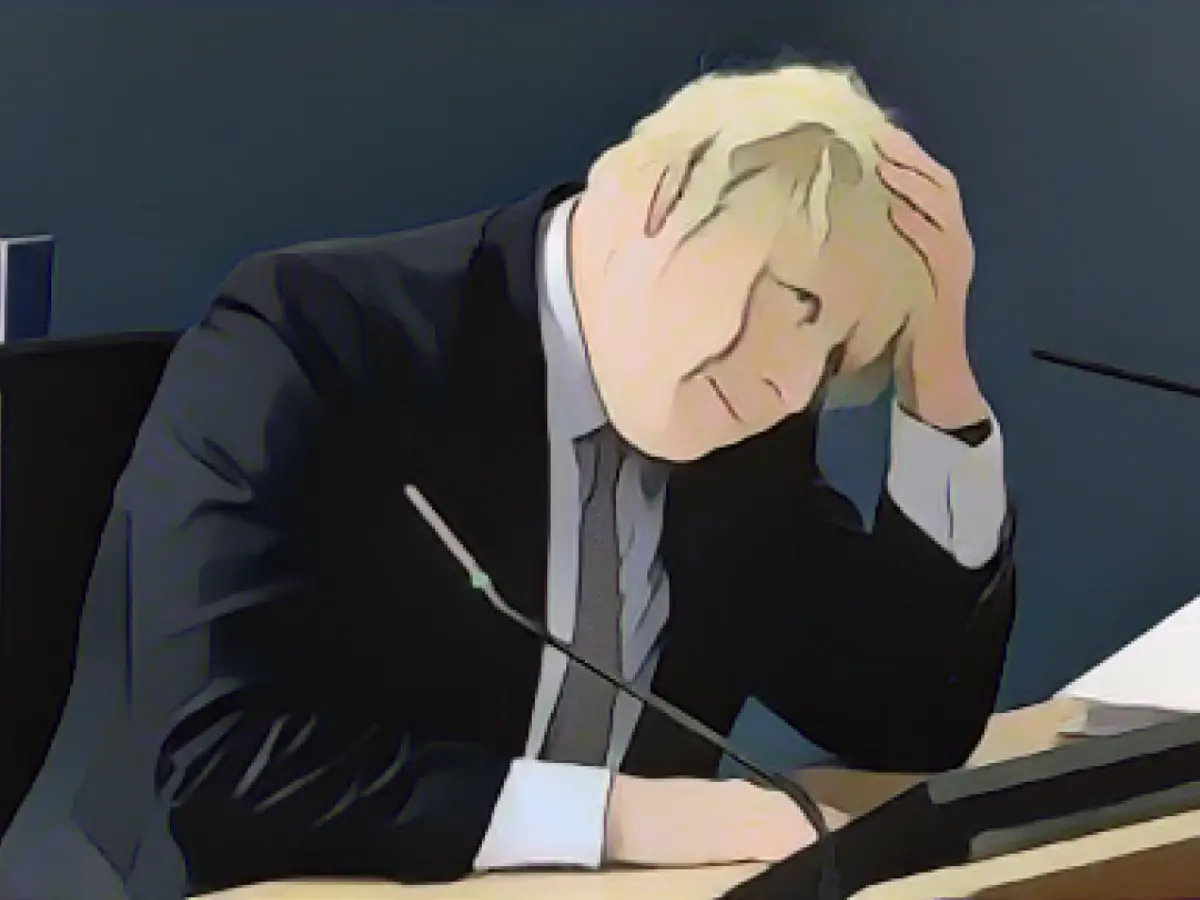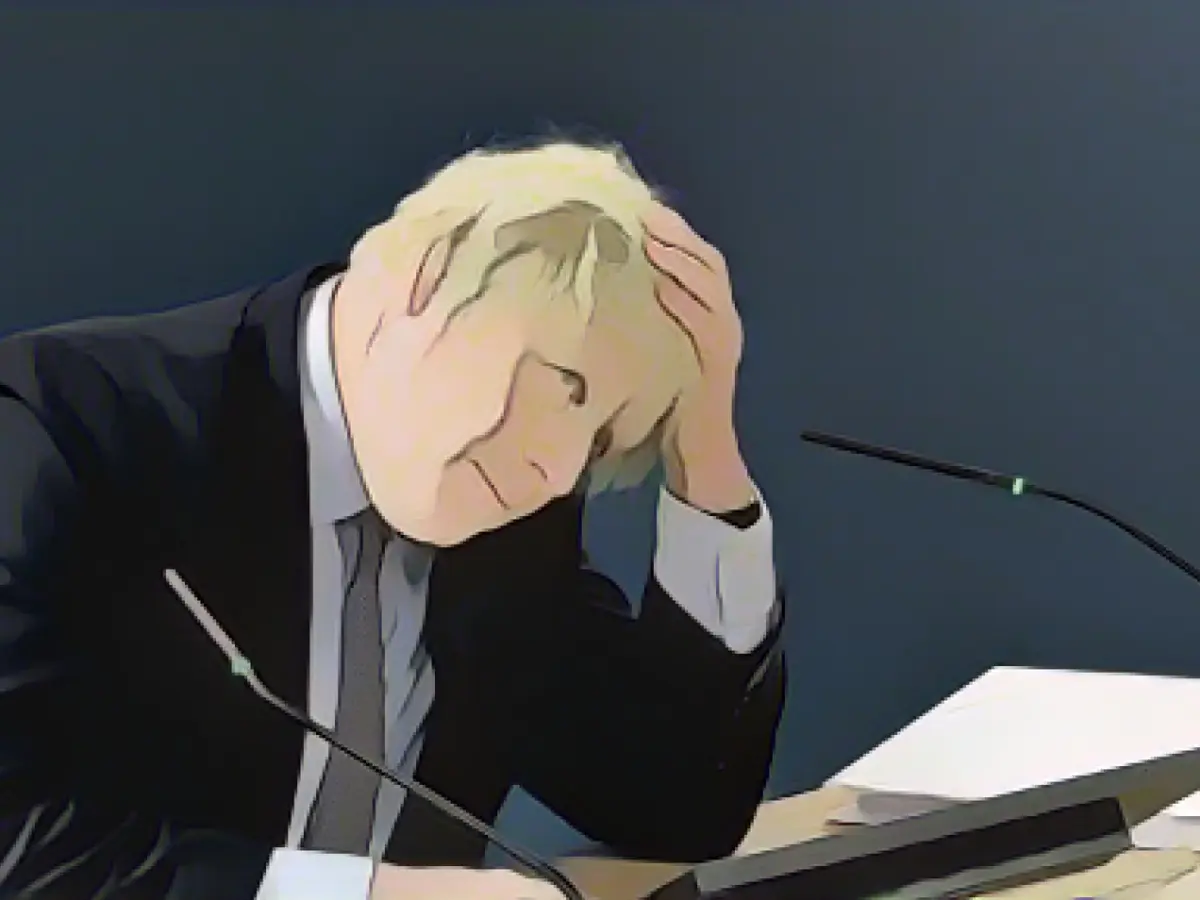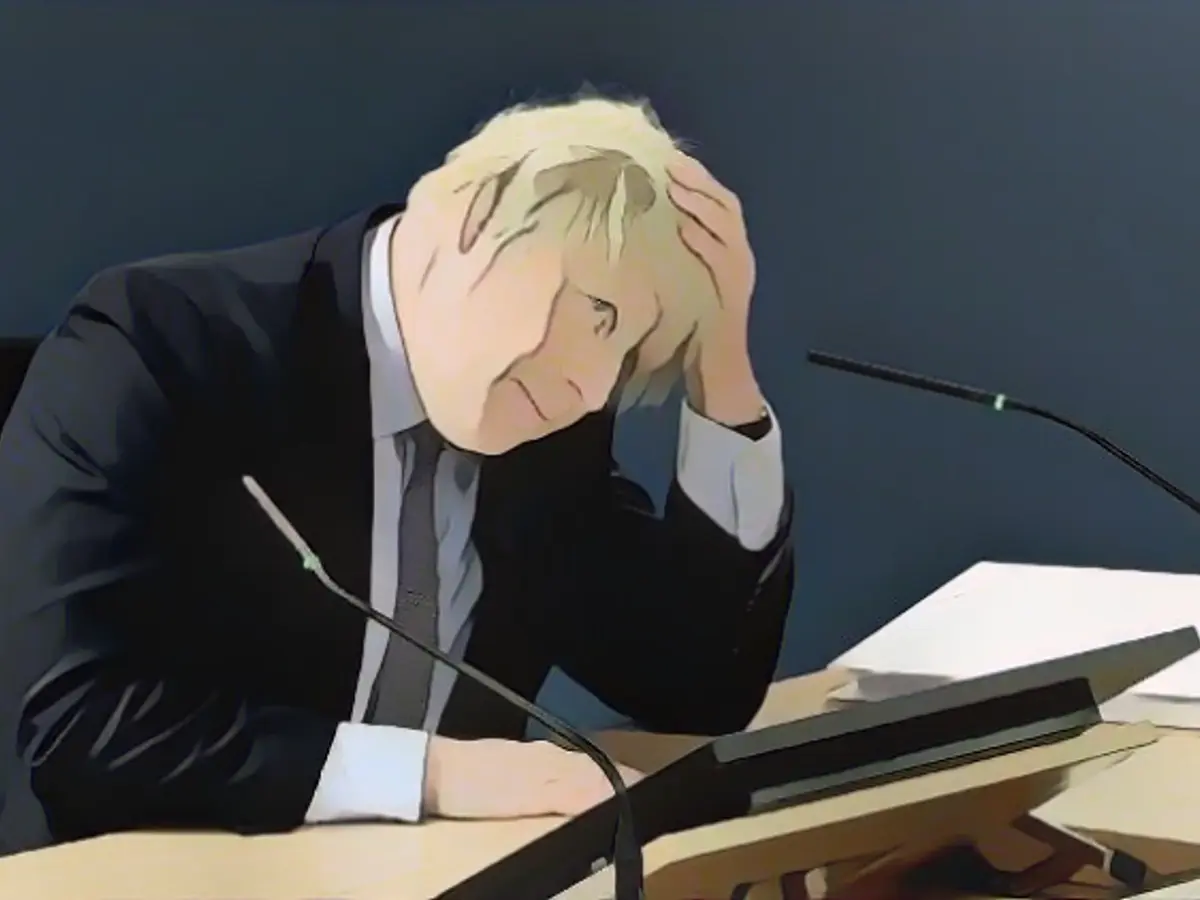Title: The Coronavirus Inquiry and Boris Johnson's Questionable Leadership
The ongoing coronavirus inquiry in Great Britain has placed former Prime Minister Boris Johnson in the hot seat, with numerous high-profile witnesses painting a less-than-flattering picture of his leadership during the COVID-19 pandemic.
Johnson's Testimony
Johnson's appearance before the independent commission was contentious at best. Lawyer Hugo Keith grilled him on delayed lockdowns, missed meetings, and potential blunders. However, the 59-year-old's responses were often vague, falling short of offering a clear explanation for his actions. He apologized for the immense suffering brought on by the pandemic, but some family members of victims remained unconvinced.
The Toxic Johnson Legacy
Recent research, such as the article "A Toxic Defense of a Toxic Legacy? Unpacking Boris Johnson's Evidential Testimony to the UK Covid-19 Inquiry," reveals that Johnson's legacy is marred by toxic behaviors and management practices that harmed his followers and the government's reputation[1].
Witness Statements and Criticism
Ex-Health Secretary Sajid Javid and former chief scientific advisor Patrick Vallance testified against Johnson, accusing him of procrastination, delay, and confusion in handling the pandemic. Many critics cite his attitude towards the elderly and vulnerable, stating that he once referred to COVID-19 as "nature's way of addressing old people."[2]
The explosive WhatsApp messages leaked scandal also revealed a culture of deceit and contempt within the government. Former chief advisor Dominic Cummings described his cabinet colleagues as "useless fucking pigs"[3].
Deflecting Criticism
Johnson attempted to deflect criticisms, claiming the debates under his tenure were no different than those under former Prime Minister Margaret Thatcher. However, the harsh language and toxic behaviors depicted in witness statements paint a different picture.
Inter-Departmental Conflict
Former Vaccine Tsar Dame Kate Bingham revealed the destructive inter-departmental conflict and "group think" within the government. She also criticized the reliance on external agencies and management consultancies, which hobbled the government's internal expertise[2].
Lack of Decisiveness
Dame Kate Bingham's testimony also exposed the government's failure to pre-emptively secure and allocate Evusheld, a vital COVID-19 drug essential for protecting clinically vulnerable patients. The decision to prioritize vaccines over more expensive treatments highlighted the government's lack of decisiveness and empathy[2].
Communication Shortcomings
The inquiry uncovered significant communication and reporting issues within the government. Critics argued that the failures arose from the lack of a direct channel to the Prime Minister, resulting in layers of confusion and inefficiencies[2].
Policy Decisions
Some policy decisions during the pandemic, such as the severely limited allocation of Evusheld, proved detrimental to the health of those most at risk. Witness statements revealed a disregard for the well-being of clinically vulnerable populations, revealing a weak and uncaring approach to the crisis[2].
Conclusion
As the inquiry continues, growing evidence of Boris Johnson's questionable leadership during the COVID-19 pandemic is coming to light. His tenure was marked by bad decision-making, poor communication, and a focus on cost-cutting rather than patient care. With the families of more than 200,000 victims closely watching, the inquiry will eventually provide the definitive answer to whether Johnson's conduct merits justification.
Sources
[1] Rutter, J., and T. Warren (2023) "A Toxic Defense of a Toxic Legacy? Unpacking Boris Johnson's Evidential Testimony to the UK Covid-19 Inquiry," King's College London
[2] "Covid-19 Vaccine Tsar highlights Boris Johnson's Blunders," The Guardian (2023) [3] "The Shocking WhatsApp Messages That Bring Down Boris Johnson," Sky News (2023)
[Keywords: Boris Johnson, coronavirus inquiry, COVID-19 leadership, witness statements, toxic leadership, inter-departmental conflict, decision-making, cost-cutting, patient care]








